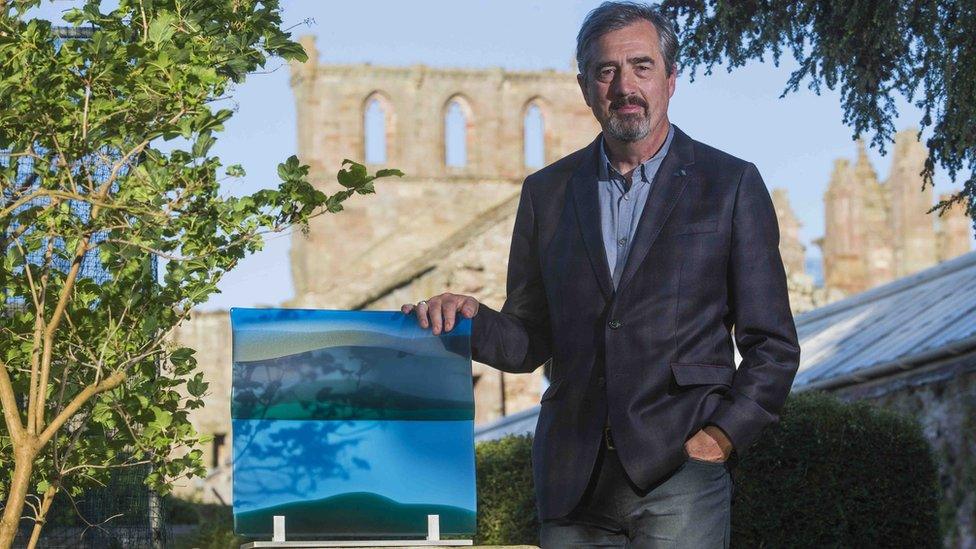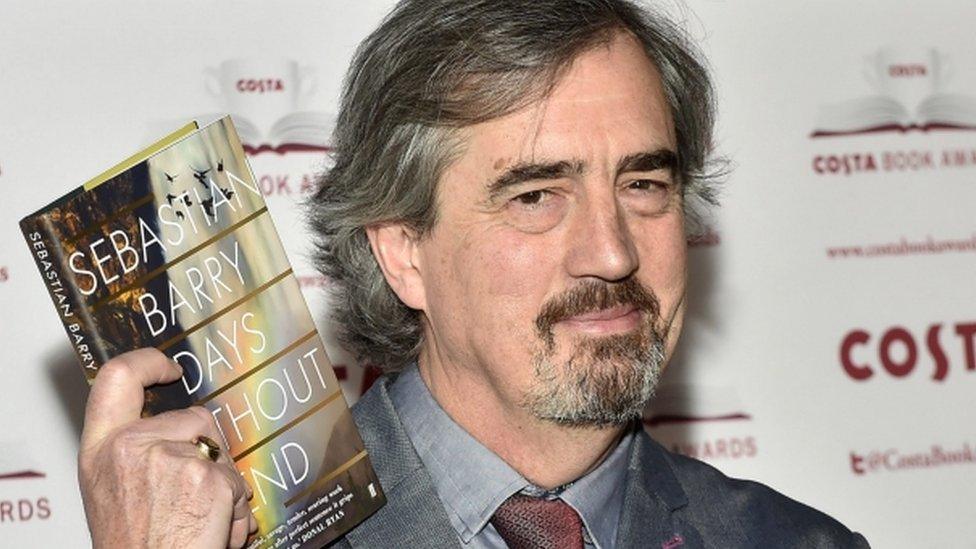Days Without End wins Walter Scott Prize
- Published

Sebastian Barry with the award for the 2017 Walter Scott Prize for Historical Fiction
Irish writer Sebastian Barry has won the Walter Scott Prize for Historical Fiction for the second time.
The 61-year-old claimed the £25,000 award for his novel Days Without End, which begins in 1850s America.
It tells the story of two Irish soldiers who go to fight in US wars, including the civil war. Judges described it as a "glorious" story with a powerful narrative voice.
Mr Barry's previous novel On Canaan's Side was a winner in 2012.
He returned to the Borders Book Festival in Melrose at the weekend to receive his prize from the Duke of Buccleuch.
Mr Barry said: "It's difficult to itemise my simple childish joy at receiving this prize; that the judges did all this work to make a 61-year-old man feel 12 again."
The judges included Elizabeth Buccleuch, journalists James Naughtie and Kate Figes, writers Katharine Grant and Elizabeth Laird, the Abbotsford Trust's James Holloway, and historian and Borders Book Festival director Alistair Moffat.
'Tooth and nail'
They said the decision was one of the hardest the Walter Scott Prize had ever made.
"The very books themselves seemed to fight tooth and nail for the accolade," they said.
"Eventually, Days Without End took the lead, for the glorious and unusual story; the seamlessly interwoven period research; and above all for the unfaltering power and authenticity of the narrative voice, a voice no reader is likely to forget."
The Walter Scott Prize is awarded to the best UK, Irish or Commonwealth novel of the previous year, which is set more than sixty years ago.
The six other short-listed novels, external included: Francis Spufford's Golden Hill, Graham Swift's Mothering Sunday and Rose Tremain's The Gustav Sonata.
The Walter Scott Prize is Mr Barry's second book prize double this year - he also won the Costa Book Prize, making him the first novelist to win the award twice.
- Published15 June 2017

- Published31 January 2017
